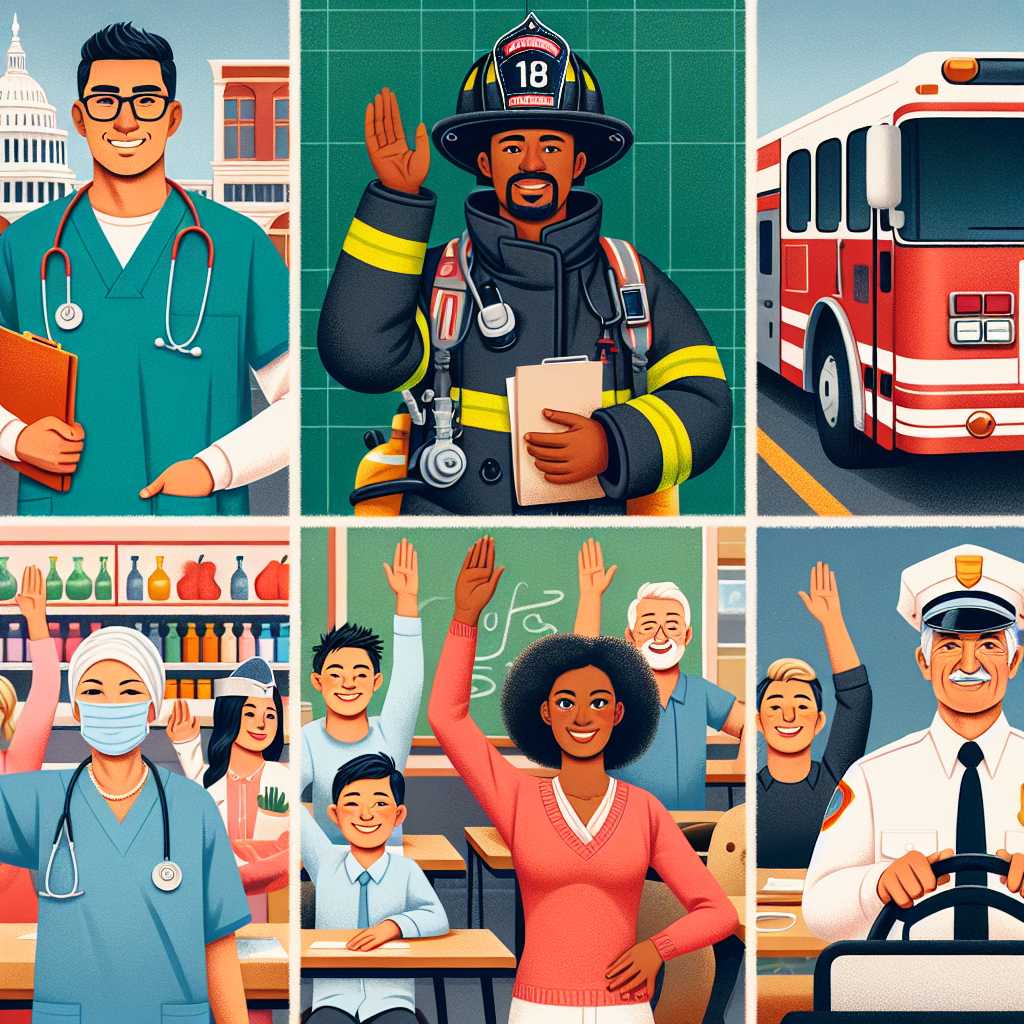The Importance and Role of Frontline Workers in Society
Frontline workers have become a focal point of discussions worldwide, particularly in light of global challenges such as the COVID-19 pandemic. These individuals are considered essential workers due to the critical services they provide that ensure the continuity and functioning of society. This article details who frontline workers are, the sectors they work in, the challenges they face, their importance during the pandemic, support mechanisms for them, and notable historical contributions.
Who Are Frontline Workers?
Frontline workers refer to individuals working in sectors considered critical to society’s most basic functioning and well-being. These sectors include healthcare, law enforcement, emergency services, food production and supply, transportation, utilities, education, and certain retail services like pharmacies and grocery stores. They are called “frontline” because they are typically at the “front” of service delivery, often directly interacting with and/or providing services to the public.
Sectors Involving Frontline Workers
There is a wide array of sectors where frontline workers play an indispensable role. Key sectors include:
–
Healthcare: Professionals such as doctors, nurses, paramedics, pharmacists, laboratory technicians, and other healthcare support staff.
– Public Safety and Law Enforcement: Police officers, firefighters, emergency medical technicians, and other emergency service providers.
– Education: Teachers, professors, and other educational staff who ensure learning continuity.
– Transportation: Bus drivers, train operators, pilots, and others who keep transport systems operational.
– Utilities and Services: Essential utilities like water, electricity, and waste management workers who maintain the infrastructure necessary to live.
– Food Service: Agricultural workers, processing plants employees, grocery store employees, food delivery personnel. Challenges Faced by Frontline Workers
–
Public Safety and Law Enforcement: Police officers, firefighters, emergency medical technicians, and other emergency service providers.
– Education: Teachers, professors, and other educational staff who ensure learning continuity.
– Transportation: Bus drivers, train operators, pilots, and others who keep transport systems operational.
– Utilities and Services: Essential utilities like water, electricity, and waste management workers who maintain the infrastructure necessary to live.
– Food Service: Agricultural workers, processing plants employees, grocery store employees, food delivery personnel. Challenges Faced by Frontline Workers
–
Education: Teachers, professors, and other educational staff who ensure learning continuity.
– Transportation: Bus drivers, train operators, pilots, and others who keep transport systems operational.
– Utilities and Services: Essential utilities like water, electricity, and waste management workers who maintain the infrastructure necessary to live.
– Food Service: Agricultural workers, processing plants employees, grocery store employees, food delivery personnel. Challenges Faced by Frontline Workers
–
Transportation: Bus drivers, train operators, pilots, and others who keep transport systems operational.
– Utilities and Services: Essential utilities like water, electricity, and waste management workers who maintain the infrastructure necessary to live.
– Food Service: Agricultural workers, processing plants employees, grocery store employees, food delivery personnel. Challenges Faced by Frontline Workers
–
Utilities and Services: Essential utilities like water, electricity, and waste management workers who maintain the infrastructure necessary to live.
– Food Service: Agricultural workers, processing plants employees, grocery store employees, food delivery personnel. Challenges Faced by Frontline Workers
–
Food Service: Agricultural workers, processing plants employees, grocery store employees, food delivery personnel. Challenges Faced by Frontline Workers
Challenges Faced by Frontline Workers
Frontline workers often face heightened risks due to their constant exposure to external uncertainties such as diseases or disasters. They may experience long hours due to high demand for services or staff shortages. These challenges can escalate into physical exhaustion or mental health issues like stress or anxiety.
During emergencies like epidemics or natural disasters, their risks magnify because they must continue working under adverse conditions. There also might be emotional strains due to higher rates of morbidity or interface with human suffering.
Importance During Pandemics
The COVID-19 pandemic escaled the crucial nature of frontline workers’ roles within societies across the globe. They provided care for the sick at great personal risk, maintained public order during lockdowns, ensured fresh food supply chains remained intact amidst logistics disruptions and kept critical infrastructure running despite unprecedented circumstances. The spotlight on these workers grew as it became evident that societies depend heavily on their resilience and continued operation.
Support Mechanisms for Frontline Workers
Acknowledgment of the invaluable services frontline workers render spurred initiatives to support them better. Health precautions such as providing adequate personal protective equipment (PPE) became top priorities. Moreover, policies to reflect hazard pay recognition of their work risks were proposed or implemented in various organizations.
Mental health resource provisions expanded to assist frontline workers faced with high-pressure situations regularly; this included counseling services or instructional materials on managing stress levels.
Community support also showed in various forms – from clapping tributes on balconies worldwide to priority shopping hours in supermarkets designated for healthcare providers.
Historical Contributions of Frontline Workers
Throughout history, frontline workers have historically carried societies through moments of crisis. For instance:
– Healthcare personnel operated continuously through health crises like other historically significant pandemics; e.g., the Influenza Pandemic of 1918.
– Emergency services such as firefighters have repeatedly been first respondents during natural disasters like earthquakes or floods.
Their contributions underscore a historical precedent where frontline personnel ensured societal resilience beads since ever on them.

